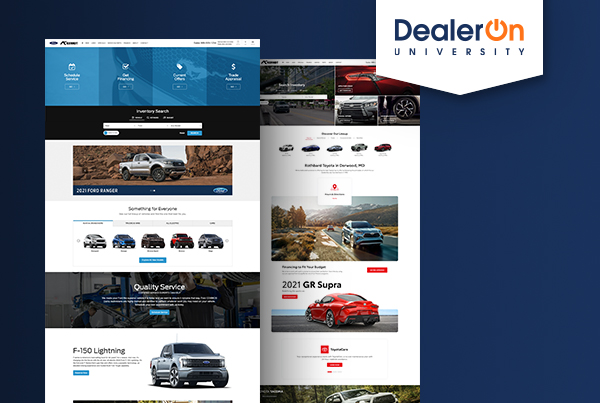

Website themes can be a great way to implement flashy new web features, but do they affect your website SEO?

Can a website theme affect your SEO?
The short answer to the question is yes, though not directly. Google isn’t penalizing specific themes or design choices, but rather structural choices within the themes that determine how well the site performs, which in-turn affects Google Search rankings.
While there is no “perfect theme” for web page performance, there a number of factors that contribute to how Google evaluates web page performance. A website theme can determine the method by which content is displayed, internal link structure, page load time, content options, and how structured data is used.
- Content display methods: SQL, PHP, Javascript, HTML/CSS. Modern websites are comprised of a number of technologies, and the way in which they are deployed can greatly affect web page performance.
- Internal link structure: Proper link structure allows Google to easily crawl and identify the types of websites users are searching for.
- Page load time: The average length of time it takes users to load a single web page.
- Content options: Some themes may offer widgets or features that can affect how long it takes your web page to load,
- Structured data: This meta data gives Google even more insight into the purpose of your site, creating a positive search signal.
Google isn’t penalizing specific themes or design choices, but rather structural choices within the themes that determine how well the site performs, which in-turn affects Google Search rankings.
Knowing which themes are going to impact your SEO in advance can be difficult. The only true way to know is testing them. Put the theme on a test site, load content from a previous site, block indexing, and review the speed tests for the site while utilizing different theme options. All of these can give you an idea of what the theme is doing and what it might be doing to your SEO. When in doubt, keep in mind Google’s Core Web Vitals. To review, those are the LCP, FID, CLS.
- LCP: Time it takes the largest page element, typically an image, to load.
- FID: Time a user must wait before they can click on an element.
- CLS: How much the content on the site moves around as it’s loading.
If the theme changes any of these, by making the LCP or FID longer or making the CLS more dramatic, it’s going to affect your SEO. Themes can impact SEO in other ways too. Keep on the lookout for plugins, loading excess scripts or web fonts (either internal or external), improper coding, or unoptimized css.
All of DealerOn’s websites and themes are thoroughly optimized and tested by our incredible Design and Quality Assurance teams prior to being released to our clients. Schedule your demo today to find out how DealerOn’s award-winning website platform gives your dealership digital showroom the technology you need to succeed.
More Articles From DealerOn University
-
- For customer experience, your website is only the beginning. These six tips will help improve your customer experience.
- Everything you need to know about the Google FLoC privacy update.
- Looking at EVs on the horizon.


